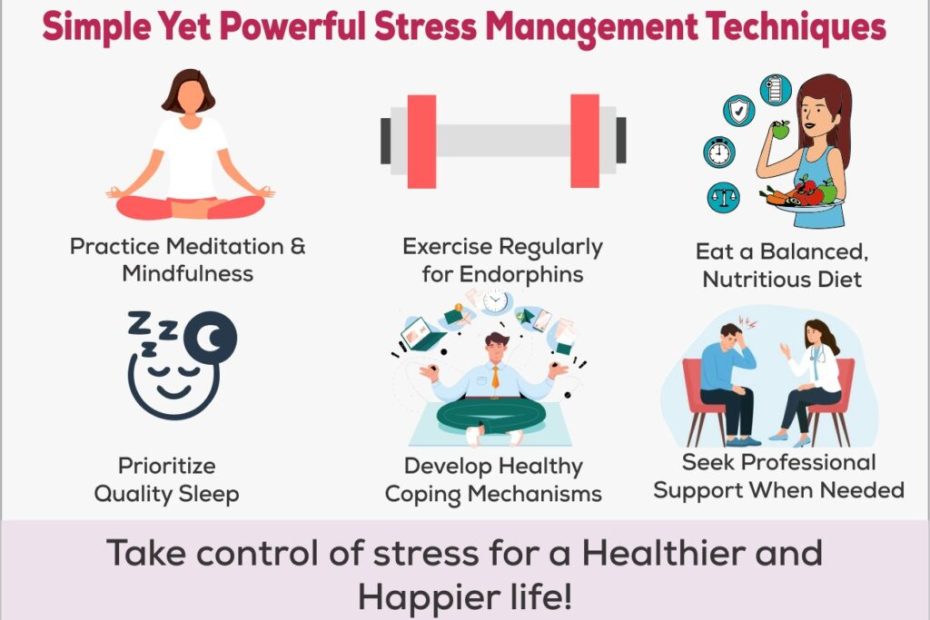When I first moved into my small apartment in the city, I thought life would finally feel lighter. I had a decent job, a cozy corner to call my own, and the buzzing energy of urban life right outside my window. But it didn’t take long for the cracks to show—emails piling up like storm clouds, phone calls that felt like they demanded more than I could give, and that quiet, invisible weight pressing on my chest. Stress had a way of sneaking in, even when everything looked fine from the outside.
The turning point wasn’t some dramatic breakdown—it was a quiet evening when I found myself sitting on the kitchen floor, halfway through reheating leftovers, realizing I couldn’t remember the last time I’d taken a slow, deep breath. That night, I promised myself I would treat my mental health with the same urgency I’d give a physical injury. After all, stress may not show up as a bruise or a cut, but it leaves its marks.
The first shift was learning to carve out moments of stillness. I started small—five minutes in the morning before checking my phone. I’d sit with a cup of tea, feeling the warmth seep into my hands, focusing on the sound of my breath. At first, it felt awkward, almost pointless. But after a few days, that pocket of calm became something I looked forward to, like a secret meeting with myself before the world barged in.
Movement followed naturally. I’m not a gym person, but I started taking slow evening walks. At first, it was just for fresh air, but soon I realized these walks were more than exercise—they were a chance to let my thoughts settle, like snow in a shaken globe. I’d come home feeling lighter, even if nothing in my life had changed except my pace.
Then came the habit of letting my mind rest from noise. We live in a constant stream of alerts, news, and chatter, and I had been unknowingly drowning in it. I set small boundaries—no screens for the first half-hour after waking, and at least one hour before bed. That simple change made my sleep deeper, my mornings calmer, and my days less frantic.
I also learned the power of talking it out. For years, I thought stress was something to be “handled” alone, but the truth is, sharing your mental load doesn’t make you weak—it makes you human. Whether it was a quick chat with a friend or a deeper session with a therapist, putting feelings into words gave them shape, and once they had shape, they were easier to manage.
Over time, these small choices wove themselves into a rhythm. The stress didn’t vanish—life is life, after all—but I no longer felt like I was drowning in it. Instead, I carried it with a steadier hand, knowing I had tools to keep it from spilling over.
If I’ve learned anything, it’s this: caring for your mental health isn’t about grand gestures or expensive retreats. It’s about the little, daily promises you keep to yourself. The pauses you take. The breaths you notice. The kindness you give your mind the same way you’d care for a tired body.
And sometimes, the best stress relief is simply remembering—you are not a machine built for endless output. You are a person, and you deserve moments of peace, no matter how busy life gets.
Daily Stress-Relief Routine
Morning (5–15 minutes)
- Gentle awakening – Before checking your phone, take three slow breaths and stretch in bed or by the window. Let light in if possible.
- Mindful intention – Think of one thing you’re looking forward to today, even if small (a cup of tea, a chat with a friend).
Midday (5–10 minutes)
- Mini-reset – Step away from screens, sip water slowly, and look outside. If indoors, focus on a plant or any calming object.
- Quick body release – Roll your shoulders, loosen your jaw, and stand tall. Imagine “shaking off” tension.
Evening (10–20 minutes)
- Digital sunset – Turn off work notifications at least 30 minutes before bed.
- Gentle unwind – Read something light, listen to soft music, or take a warm shower.
- Gratitude reflection – Name three things that went well today, no matter how small.
Weekly Stress-Relief Routine
Once or Twice a Week
- Nature time – Take a slow walk in a park, by a river, or anywhere green. Move at a pace where you notice small details: a leaf’s texture, the sound of birds.
- Creative moment – Paint, cook something new, journal, or play music—focus on the joy, not the result.
- Social connection – Have a relaxed conversation with someone who makes you feel safe and understood. No “big talk” required; even a coffee chat works.
End of the Week
- Reflect and reset – Spend 10 minutes writing down small victories and any lingering worries. Decide what to keep, let go, or act on next week.
- Gentle self-reward – Treat yourself: a favorite meal, a warm bath, a good book, or watching a movie guilt-free.
